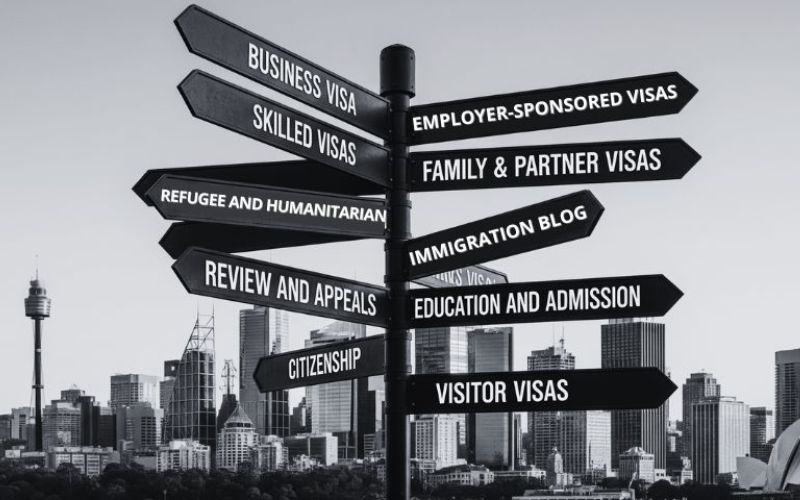Applying for a visa to Australia can seem straightforward at first glance, but in reality, there are many legal and procedural requirements that must be satisfied before an application can even be considered valid. At Australian Migration Law, we help clients understand what makes a visa application valid, how the system is structured, and why attention to detail is critical.
What Makes a Visa Application Valid?
Under Section 46 of the Migration Act 1958, a visa application is valid if, and only if, certain criteria are satisfied. These include:
- The application is for a specified visa class.
- The requirements in Schedule 1 of the Migration Regulations are met (e.g., correct form, location of lodgement, timing).
- All relevant visa application charges and fees are paid.
- The applicant provides personal identifiers if required.
- The application is not prevented by a legislative constraint (e.g., visa refusal bars under section 48).
- The application is not made invalid under any provision of the Act.
If any of these elements are missing or incorrect, the Department of Home Affairs will not even consider the application.
Legislative Constraints That Can Invalidate Applications
Even if you complete a form and pay a fee, certain provisions of the Migration Act may still prevent your application from being valid. Some key examples include:
- Section 48 – Prevents some non-citizens who have had a visa refused or cancelled while in Australia from applying for most other visas (subject to limited exceptions).
- Section 48A – Restricts repeat applications for protection visas.
- Sections 91E, 91G, 91K, 91P – Restrictions related to protection claims and safe third countries.
- Section 501E – Prevents further applications if a visa was refused or cancelled on character grounds.
- Sections 46A & 46B – Restrictions applying to unauthorised maritime arrivals and transitory persons.
These provisions highlight how complex migration law can be. Even if you meet the general requirements, hidden legal barriers may stop your application from being valid.
The Minister’s Role in Valid Visa Applications
If an application is valid, Section 47 of the Migration Act requires the Minister (or their delegate) to consider it. However, the Minister has no duty to consider applications that are invalid. In practice, this means:
- A properly prepared valid application must be assessed.
- An invalid application is effectively treated as if it was never lodged.
- Applicants risk losing both time and money if they make errors at the lodgement stage.
Visa Structure in Australia
Australia’s visa system is highly structured, consisting of visa classes, subclasses, and streams.
- Visa Classes: Identified by two-letter codes (e.g., Class TU – Student (Temporary)).
- Visa Subclasses: Identified by three-digit numbers (e.g., Subclass 500 – Student visa).
- Streams: Some subclasses are further divided into streams (e.g., Business Innovation stream, Investor stream).
Examples of Visa Categories
If a visa is refused or cancelled, appeals may be lodged with:
- 0xx – Bridging visas
- 1xx – Permanent migrant visas (offshore)
- 2xx – Refugee and humanitarian visas (offshore)
- 4xx – Temporary resident visas
- 5xx – Student visas
- 6xx – Visitor visas and Electronic Travel Authorities (ETAs)
- 8xx – Permanent residence visas (onshore)
Each subclass has its own criteria, including Schedule 1 (application requirements) and Schedule 2 (eligibility criteria, conditions, and grant circumstances) under the Migration Regulations 1994.
Why Validity Matters
A visa application that is invalid cannot be considered, no matter how strong your case may be. Invalid applications can cause:
- Loss of visa application charges (which are non-refundable).
- Loss of lawful status if you no longer hold a valid visa.
- Bars to future applications under provisions such as section 48.
Given these risks, it is critical to seek advice before lodging your application.
How We Can Help
At Australian Migration Law, our experienced immigration lawyers can:
- Assess whether your application will be valid under the Migration Act and Regulations.
- Advise on possible legislative constraints that may apply to your situation.
- Guide you through the correct visa subclass and stream for your circumstances.
- Help you avoid costly mistakes that could jeopardise your migration pathway.
Australia’s visa framework is highly technical, and even small mistakes can render an application invalid. By working with a qualified immigration lawyer, you can ensure your application is valid, compliant, and has the best chance of success.
Disclaimer
The content of this article is for information purposes only. Whilst every effort has been made to ensure the accuracy of the materials contained here and incorporated by reference, this article is not intended to constitute legal or immigration advice or assistance.
No person should act on the basis of the material contained in this presentation without obtaining advice relevant to their own circumstances and without considering and taking professional advice as may be necessary.
For tailored advice and comprehensive assistance with your migration matter, contact our experienced Australian immigration lawyers today. You can reach us by email at admin@australianmigrationlaw.com.au or phone +61 407 662 682 to obtain further guidance.

